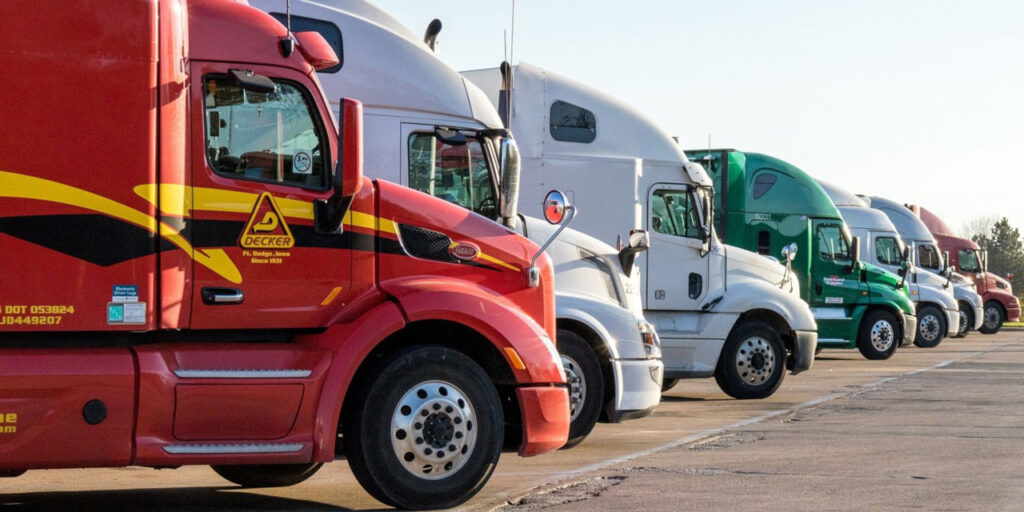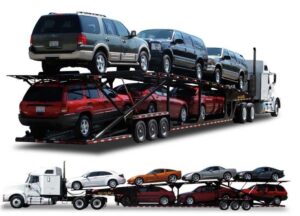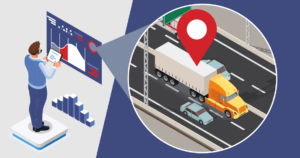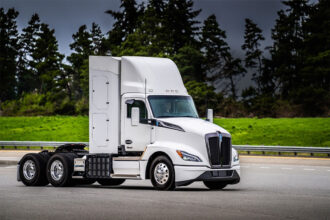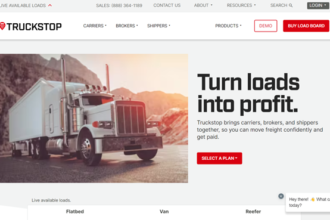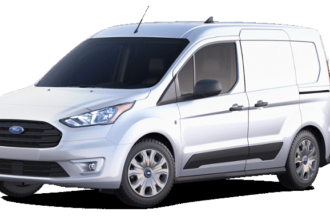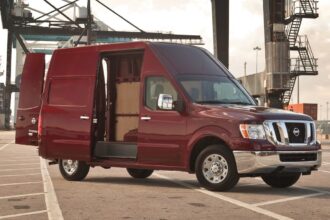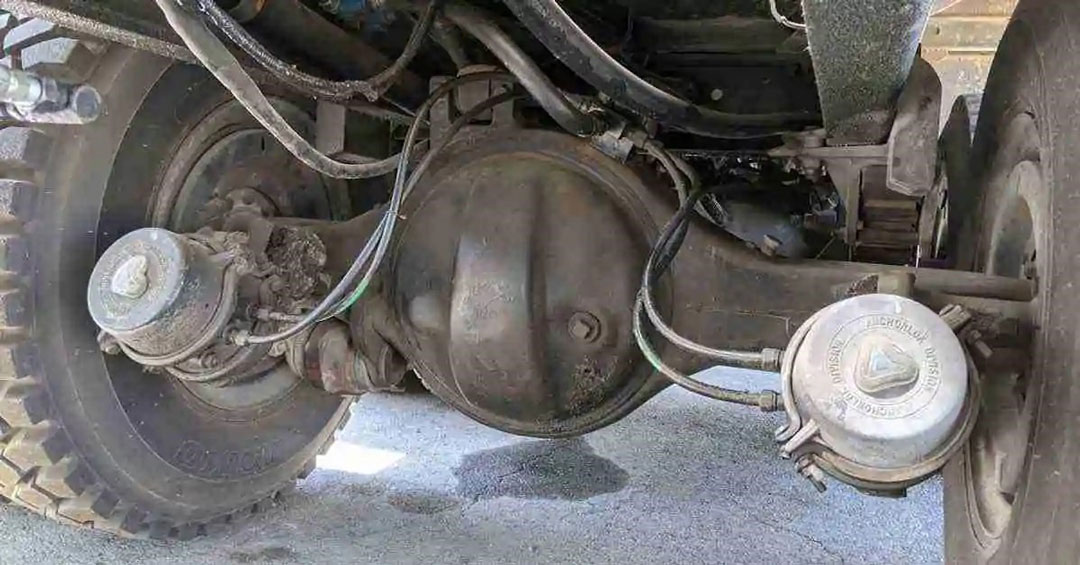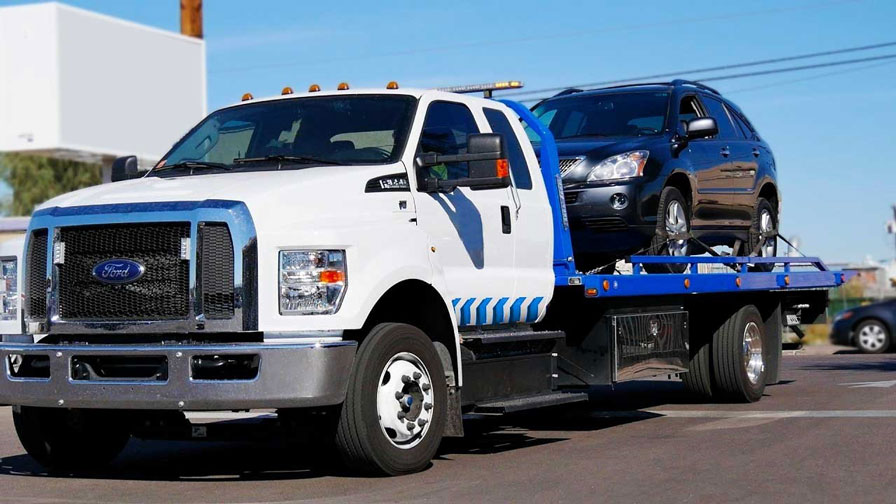Table of Contents
Are you ready to navigate the winding roads of the trucking industry towards resounding success? Crafting a comprehensive business plan is your indispensable roadmap to make that journey not only smooth but triumphant.
A comprehensive trucking business plan serves as the blueprint for your venture, an intricate map detailing every aspect of your operation. It’s a dynamic project that delves deep into the intricacies of how your business will function and flourish over time. More than just a document, it’s your entrepreneur’s compass, guiding your every decision. It’s the cornerstone upon which potential investors build their trust and make informed choices.
But, it’s not just about setting your goals in stone. In the ever-evolving world of trucking, it’s your tool for staying agile, adapting to shifting industry trends, and thriving in the highly competitive landscape. So, buckle up and prepare to embark on the journey of creating a trucking business plan that will not only steer your business toward success but also keep you ahead of the curve in the trucking industry.
To Write a Comprehensive Business Plan for Trucking Business:
- Understand the Steps to Take Before Crafting a Business Plan for Your Trucking Business
- Get the Information Required to Prepare a Business Plan for Your Trucking Business
- Clarify Your Business Mission and Vision
- Examine Industry Trends, Demand, and Competitors
- Furnish an Elaborate Account of Your Trucking Business Plan
- Outline Your Operational Strategy
- Create a Marketing and Sales Game Plan
- Showcase Financial Predictions
>>>MORE: Trucking Business For Beginners
1. Understand the Steps to Take Before Crafting a Business Plan for Your Trucking Business
To craft a business plan for trucking business, understand the steps to take before crafting a business plan for your trucking business.
Before writing a business plan for your new trucking business, it’s important to register your business and obtain the necessary permits and licenses. You can register your company in several ways, such as a sole proprietorship with a DBA, an LLC, a C Corp, or an S Corp. You’ll also need to obtain an employer identification number (EIN) from the IRS, a Department of Transportation (DOT) number, a motor vehicle carrier (MC) number, and file a BOC-3 with the Federal Motor Carrier Safety Administration.
Additionally, you’ll need to get truck insurance, apportioned plates, set up an International Registration Plan, and an International Fuel Tax Agreement. Finally, you’ll need to get a Unified Carrier Registration by visiting its website (UCR.gov.) By completing these steps, you’ll be able to legally operate your trucking business and move forward with crafting a comprehensive business plan.
2. Get the Information Required to Prepare a Business Plan for Your Trucking Business
To write a business plan for trucking business, get the information required to prepare a business plan for your trucking business.
After registering your trucking company, it’s important to educate yourself on industry basics and general business knowledge. This includes understanding terms like cash flow, profit and loss (P&L), return on investment (ROI), and more. Additionally, you should figure out what assets you have and what they are worth, including your truck if it’s paid off. You should also calculate your projected fuel costs, miles per gallon, and miles driven to determine your operation and maintenance costs.
Understanding how to manage costs, project revenue, and expenses will help you determine your profit margin. It’s also important to know the going rates in different freight lanes and set up your operating procedures for different freight types. This includes understanding spot market vs. contract market rates and deciding if you will add fuel surcharges to your rates. By completing these steps, you’ll be fully equipped to write a comprehensive business plan for your trucking company.
3. Clarify Your Business Mission and Vision
To prepare a business plan for trucking business, clarify your business mission and vision.
Take a moment to crystallize your trucking company’s mission and vision. Your mission statement should succinctly convey your business’s purpose and values, while your vision statement paints a picture of your long-term goals and the future you envision for your company. Ensure these statements are concise, motivating, and in harmony with your overall business objectives.
Offer a succinct overview of the services your trucking company will provide. Highlight any distinctive features or extra value you bring compared to competitors. Define your target market clearly, specifying the industries or customer groups you aim to serve. Explain the rationale behind your belief in the demand for your services in this market and elucidate your strategy for fulfilling that demand. This will enable you to stay focused and aligned with your business goals.
4. Examine Industry Trends, Demand, and Competitors
To create a business plan for trucking business, examine industry trends, demand, and competitors.
In the trucking industry, a comprehensive market analysis is pivotal for success. Here, you must articulate the precise need your business fulfills and your in-depth understanding of it. Start by delineating your target market’s size, whether it’s extensive or niche, and elucidate who your competitors are. Provide insights into what your customers require that you are uniquely positioned to deliver. Demonstrating a profound comprehension of your competition showcases your ability to outperform them.
Competitor Analysis
This section focuses on dissecting your competitors. Identify them, evaluate their customer base, strengths, and weaknesses. Emphasize how you plan to excel where competitors may fall short, positioning your business as the superior choice.
Pricing and Margins
Detail your pricing structure and compare it to competitors. Discuss the profit margins necessary for sustainability and profitability. A clear pricing strategy is crucial for financial success and market competitiveness.
5. Furnish an Elaborate Account of Your Trucking Business Plan
To generate a business plan for trucking business, furnish an elaborate account of your trucking business.
The detailed description of your business plan serves as the heart of your business identity. It goes beyond an “About Us” introduction and provides a deep dive into your business’s essence. In this segment, you can elaborate on your industry background, knowledge, and experience. Additionally, it’s crucial to highlight what sets your business apart from competitors, whether through specialization in specific freight areas, unique partnerships, or valuable industry connections. You should also introduce your team members, including managers, and emphasize their expertise.
Furthermore, this section should define your ideal client base and outline your strategy for connecting with them and expanding your customer network. Essentially, it forms the foundation of your business’s purpose and operations, offering readers a comprehensive understanding of your business identity and objectives.
6. Outline Your Operational Strategy
To construct a business plan for trucking business, outline your operational strategy.
The operational plan for your trucking business is a crucial component of your business plan as it outlines how you will effectively manage the day-to-day operations of your business. It encompasses critical roles, routing and dispatch strategies, and the utilization of technology to ensure profitability.
For example, you can use load boards to find reliable brokers and money-making loads quickly and plan optimal routes for maximum profitability. Freight factoring can help you get paid quickly, rather than waiting for the load broker to pay. You can even apply for advances and get broker credit checks right away. You should also plan to use other small business software for accounting, mileage tracking, and more. Automating your accounting process will save you both time and money. By including these details in your operational plan, you can create a strong foundation for your trucking business and increase your chances of success.
>>>GET SMARTER: USDOT and MC Number Application: Checklist to Follow
7. Create a Marketing and Sales Game Plan
To write a business plan for trucking business, create a marketing and sales game plan.
To succeed in a crowded market, a trucking business needs effective sales and marketing strategies. Marketing tactics can include digital and traditional methods, while building a loyal customer base requires personalized service and value. Sales strategies can involve brokers or sales personnel, but it’s important to have a well-defined approach that outlines your target market, sales approach, and goals. By combining these strategies, a trucking business can stand out and attract new customers while nurturing long-term relationships.
8. Showcase Financial Predictions
To prepare a business plan for trucking business, showcase financial predictions.
When creating financial projections for a trucking business, it’s advisable to predict finances for at least five years into the future. This provides a roadmap and shows investors that you have a solid plan. Evaluating future opportunities requires considering how they align with your business plan and assessing whether you have the experience and resources to handle them effectively. Making informed decisions based on your business plan and financial projections can lead to long-term success.
Recap
To create a successful business plan for a trucking company, it’s important to include several key elements. These include a company description, operational plan, sales and marketing strategies, and financial projections. By including these elements in your business plan, you can create a strong foundation for your trucking business and increase your chances of success.


